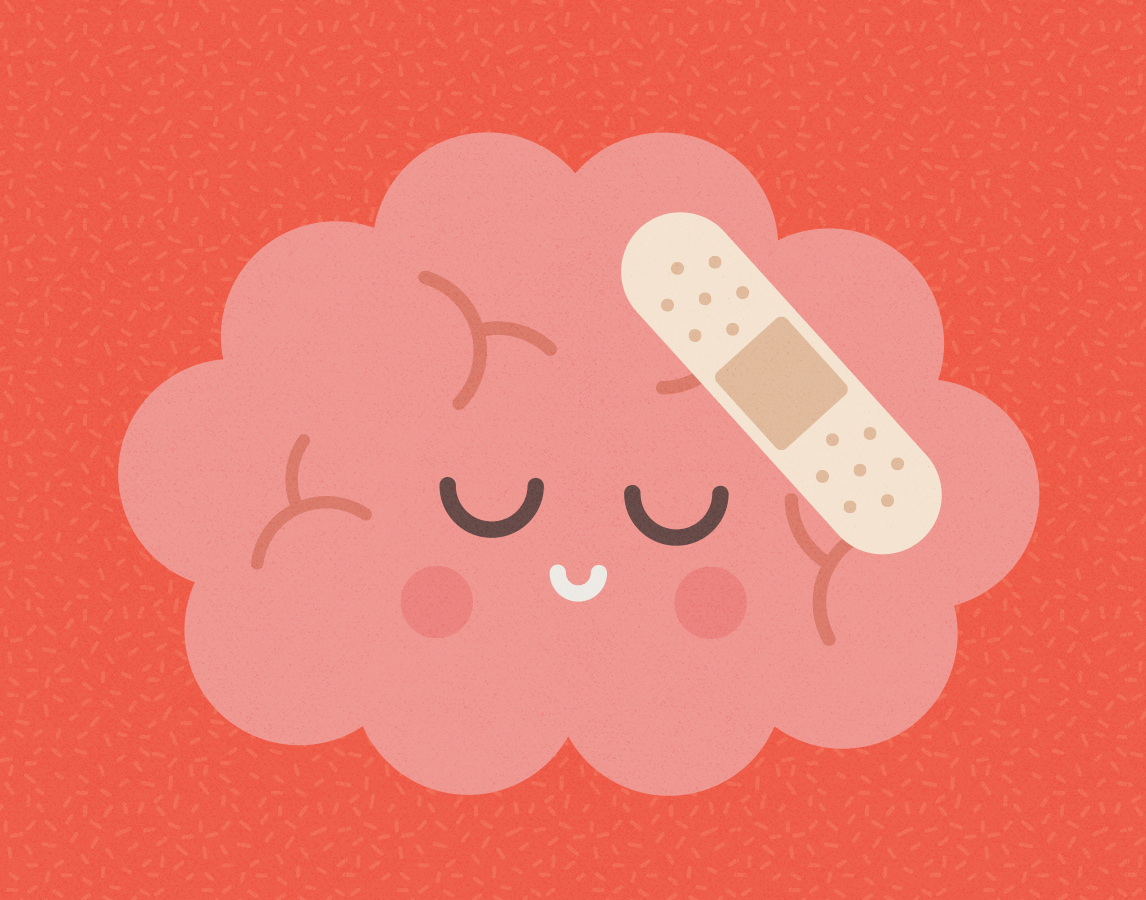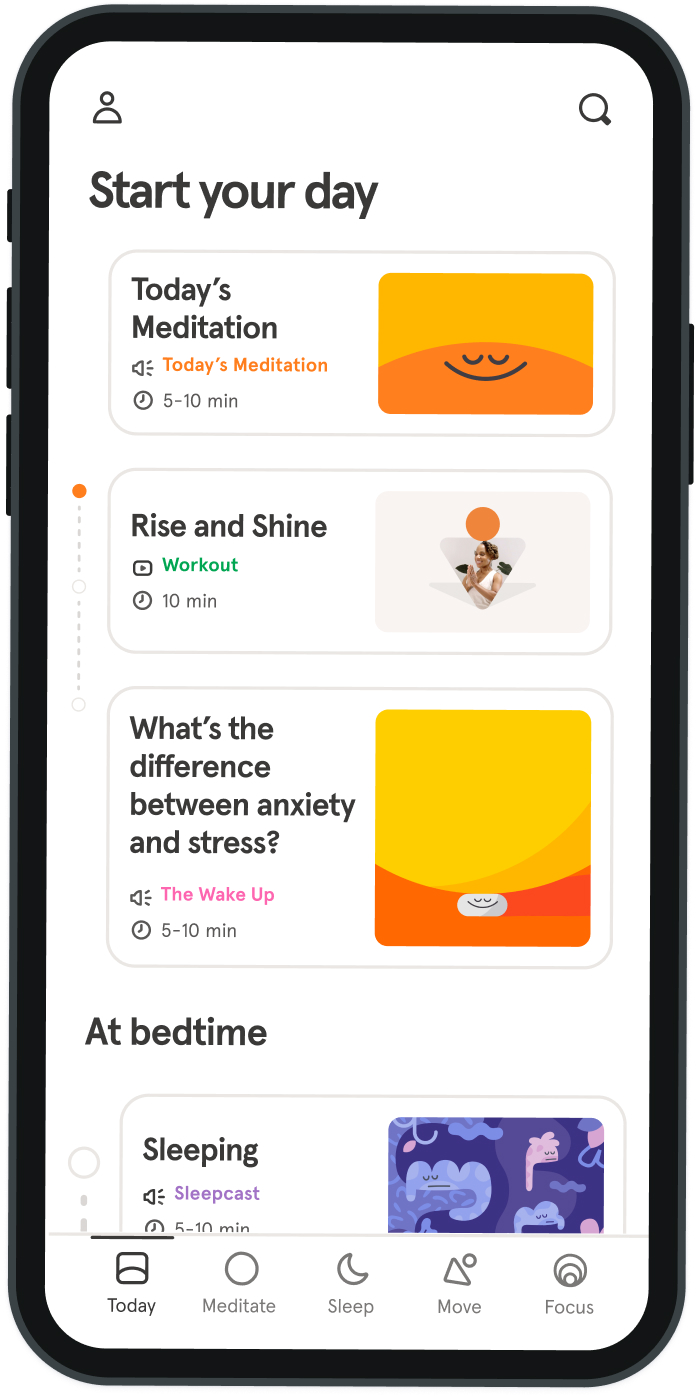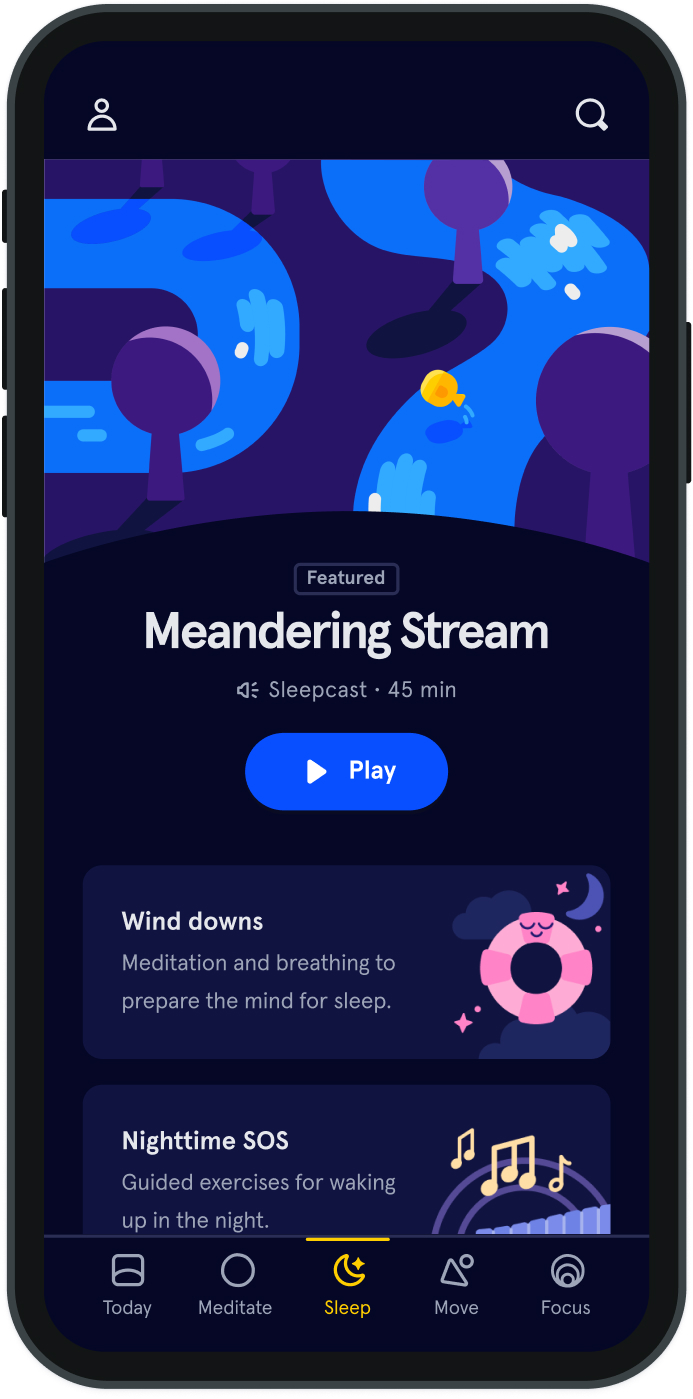Can meditation shorten recovery time after surgery?
It’s normal to be anxious before undergoing a medical procedure or depressed after receiving a terminal diagnosis ... But your feelings shouldn’t affect your health outcomes—right? Turns out, they very well might.
A significant number of studies suggest preoperative anxiety is associated with increased postoperative pain, slower recovery, increased risk of infection, and other negative outcomes. One study of 230 adults showed that those with negative attitudes before radiology treatments—fear, distress, or hostility—were more likely to experience unstable heart rate and blood pressure during the procedure, and had an increased risk of postoperative bleeding. According to Linda Carlson, chair of psychosocial oncology research at the University of Calgary in Canada, stress and anxiety cause inflammatory cytokines and stress hormones to be secreted into the bloodstream. These, she says, “can have dampening effects on the immune system. Hence, people are less able to recover quickly from medical procedures like surgery, and their healing from wounds may be slower.” But before you start worrying about worrying too much before your next medical procedure, it may help you to know that scientists’ next task has been to identify effective ways to reduce pre-procedural anxiety. When German researchers recently performed a randomized controlled trial of 253 patients, they found that thirty minutes of supportive psychotherapy delivered by trained nurses significantly reduced anxiety before bypass surgery—an effect that persisted even five days after. Researchers from Israel performed a similar trial on 360 patients; they reported that, compared to anti-anxiety medication alone, using medication in conjunction with acupuncture, individualized guided imagery, or reflexology significantly reduced preoperative anxiety.
But not every patient can take anti-anxiety medication, as it might interact with other drugs they are on, and the medication itself may prolong recovery. Citing the need for non-pharmacological interventions to reduce anxiety during breast biopsies, a dissertation study from the University of Houston looked at the impact of guided meditation or focused breathing before and during the procedure. Guided meditation proved most effective. The author observed that “participation in guided meditation appears to be particularly useful for individuals who report low mindfulness, suggesting even transient increases in mindfulness may be beneficial in acutely stressful settings.” Additionally, both exercises were associated with “neuronal quieting” in brain regions associated with pain processing, emotional and cognitive engagement, and self-awareness. Listening to music is one of the most frequently researched methods of reducing anxiety before operations, likely because it’s free and easy to provide. A review of 26 music therapy studies concluded that preoperative music listening results in notable anxiety reduction and can even have a positive effect on heart rate and blood pressure. And it’s not just before treatment that’s important; your mood and outlook after treatment may also impact recovery. Approximately 20 percent of heart-attack patients are rehospitalized or die within a year. But according to a recent study of 164 patients, feelings of optimism after a heart attack were associated with fewer hospital readmissions. After examining other studies on the subject, the researchers concluded that “positive psychological well-being is associated with superior cardiac health and reduced mortality in patients with medical illness, independent of traditional cardiac risk factors and negative psychological conditions, such as depression.” Yes, optimism may counter-balance some of the negative physical effects of depression. This is good news, because, unfortunately, depression can have much longer-lasting effects on physical health than pre-procedural anxiety.
“Depression leads to an inflammatory response that causes suppression of some parts of the immune system, which can leave people more susceptible to infections,” Carlson says. “People who are depressed take longer to recover from disease and even have worse survival outcomes in heart disease and cancer, for example.” The effect of depression on cancer is a widely studied subject—one that is especially important because a cancer diagnosis can often lead to depression. According to the National Cancer Institute, depression affects approximately 15 to 25 percent of cancer patients. “For many years, patients and clinicians have been trying to understand the link between physiological and psychological health,” researchers from King’s College London wrote in a study on the relationship between depression and cancer. They explain that depression—pre-existing and post-diagnosis—is an independent predictor of reduced survival among cancer patients. After reviewing the medical records of 77,000 female breast cancer patients, the researchers found that women diagnosed with depression after a cancer diagnosis had a 45 percent higher risk of death than other patients. Five years after diagnosis, 75 percent of patients without depression were still alive, while only 55 percent of those with depression were still living. Depression can be treated with medication, but antidepressant interactions with cancer-treatment drugs may pose prescribing problems. Thus, the importance of talk therapy, and of finding out which additional therapies can help reduce depression symptoms.
“If you can use complementary therapies, particularly mind-body therapies like meditation, relaxation, and yoga to control the stress response and decrease the release of pro-inflammatory cytokines, this may result in better outcomes,” Carlson says. Cancer patients who participated in dance movement therapy throughout their treatment said it helped them cope with cancer and its treatment, according to a recent study. The participants reported improved total functioning, mental wellbeing, and attention, and a greater appreciation for their self and body. The study authors believe dance therapy could even help reduce the number of patients who drop out of treatment. Another study of 163 women undergoing breast cancer treatment showed that participating in yoga reduced sleep disturbances and depressive symptoms and improved their overall quality of life. Carlson’s research on telomeres—the protective casing at the end of a DNA strand—give further clues to the biological mechanisms at play here. The length of your telomeres is an indication of cellular aging: they get shorter as you age. Chronic stress can cause accelerated telomere shortening. Carlson’s study showed that the telomeres of cancer survivors who participated in daily meditation and yoga or weekly group therapy stayed the same length over the course of three months; those who didn’t participate had shortened telomeres. Carlson said the effects of stress on telomeres are “more likely to be seen in the long run, not short term.” While meditation, music, talk therapy, and creative arts don’t cure diseases, they may blunt the increased physiological harm associated with the stress, anxiety, or depression that often come with medical treatments and serious diagnoses. Uncovering these connections between mind and body can help us understand the importance of such therapies to address mental health when undergoing medical treatment.

Your mood and outlook after treatment may also impact recovery.
Olivia Campbell
Your mood and outlook after treatment may also impact recovery.
Olivia Campbell


Be kind to your mind
- Access the full library of 500+ meditations on everything from stress, to resilience, to compassion
- Put your mind to bed with sleep sounds, music, and wind-down exercises
- Make mindfulness a part of your daily routine with tension-releasing workouts, relaxing yoga, Focus music playlists, and more
Meditation and mindfulness for any mind, any mood, any goal

Stay in the loop
Be the first to get updates on our latest content, special offers, and new features.
By signing up, you’re agreeing to receive marketing emails from Headspace. You can unsubscribe at any time. For more details, check out our Privacy Policy.
- © 2025 Headspace Inc.
- Terms & conditions
- Privacy policy
- Consumer Health Data
- Your privacy choices
- CA Privacy Notice
